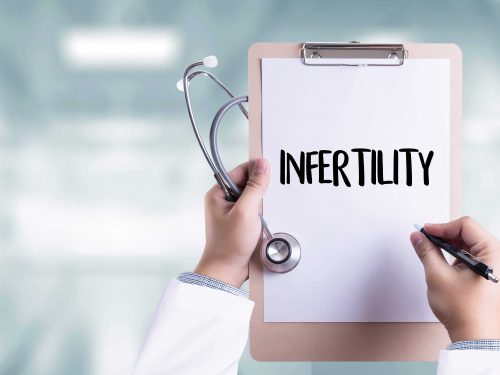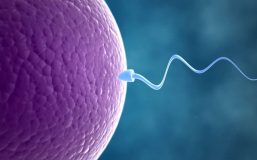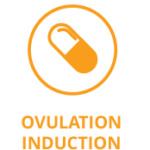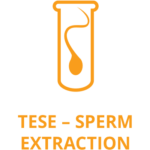Infertility Clinics
Best Infertility Clinics in Hyderabad
Infertility – A bane for motherhood. We @ Parijatham understand the physiology, believe in nature, and use science to facilitate nature. We choose to achieve with least intervention!

our services
Services @ Best Infertility clinics in Hyderabad- With Decades of experience in Infertility we offer a complete range of support services starting with Counselling. We understand the cause could be very insignificant and hence we interview both the partners together and separate to know them and their knowledge of physiology, needs and apprehensions.
With this knowledge about the couple, we at the Best Infertility clinics in Hyderabad, help the couple diagnose their problem and facilitate a solution. We prefer to intervene least to enhance nature do the most. Our experience with couples has shown that increasing the understanding along with minimal medical treatment has given lot of success at conception.
Specialists at Our infertility clinics are fully trained to provide various procedures like Hysteroscopy, Laparoscopy, & IUI to ensure a comprehensive care.

Diagnosis
Reasons for infertility could be in either partners. Male or Female. Investigation starts from understanding the relationship between the partners to tests looking for specific known reasons. Many a time causes are simple and easy to treat.

CounsellinG
Success in infertility treatment is heavily dependant on the understanding and co operation between partners. No room for blame game! An insight into the plan of treatment will help the patients achieve their hopes.

Treatment
Treatment needs to be specific for the cause to achieve the best outcomes. If necessary both the partners need advise. It could be medical treatment to facilitate ovulation or adjustment to time the meet or surgical treatments like laparoscopy or hysteroscopy.
our expertise
Hysteroscopy
Innumerable causes for female infertility could be identified by this outpatient procedure and can be treated by simple methods.
Laparoscopy
With a decade of experience in Laparoscopy we offer Diagnostic and therapeutic complex laparoscopy procedures to deal with infertility in female.
Expertise over the decades!
Dr Babitha with more than two decades of experience and having been part of leading Infertility centres in Hyderabad she is well placed to advise and guide you in your journey towards your dreams!
Infertility can be male & Female












BEST INFERTILITY CLINICS IN HYDERABAD
In general, infertility is defined as not being able to get pregnant (conceive) after one year (or longer) of unprotected sex. Because fertility in women is known to decline steadily with age, some providers evaluate and treat women aged 35 years or older after 6 months of unprotected sex. Women with infertility should consider making an appointment with a reproductive endocrinologist—a doctor who specializes in managing infertility. Reproductive endocrinologists may also be able to help women with recurrent pregnancy loss, defined as having two or more spontaneous miscarriages.
Pregnancy is the result of a process that has many steps.
To get pregnant
- A woman’s body must release an egg from one of her ovaries (ovulation).
- A man’s sperm must join with the egg along the way (fertilize).
- The fertilized egg must go through a fallopian tube toward the uterus (womb).
- The fertilized egg must attach to the inside of the uterus (implantation).
Infertility may result from a problem with any or several of these steps.
Impaired fecundity is a condition related to infertility and refers to women who have difficulty getting pregnant or carrying a pregnancy to term.
For comprehensive care reach us at Parijatham – Best Infertility clinics in Hyderabad.
Yes. About 6% of married women aged 15 to 44 years are unable to get pregnant after one year of trying (infertility). Also, about 12% of women aged 15 to 44 years i have difficulty getting pregnant or carrying a pregnancy to term, regardless of marital status (impaired fecundity).
No, infertility is not always a woman’s problem. Both men and women can contribute to infertility. Hence at our centre, rated as Best infertility clinics in Hyderabad, we spend interviewing both the partners and after prolonged counselling we investigate to put a finger and identify the problem.
Many couples struggle with infertility and seek help to become pregnant, but it is often thought of as only a woman’s condition. However, in about 35% of couples with infertility, a male factor is identified along with a female factor. In about 8% of couples with infertility, a male factor is the only identifiable cause.
Almost 9% of men aged 25 to 44 years reported that they or their partner saw a doctor for advice, testing, or treatment for infertility during their lifetime.
Infertility in men can be caused by different factors and is typically evaluated by a semen analysis. When a semen analysis is performed, the number of sperm (concentration), motility (movement), and morphology (shape) are assessed by a specialist. A slightly abnormal semen analysis does not mean that a man is necessarily infertile. Instead, a semen analysis helps determine if and how male factors are contributing to infertility.
Disruption of testicular or ejaculatory function
- Varicoceles, a condition in which the veins on a man’s testicles are large and cause them to overheat. The heat may affect the number or shape of the sperm.
- Trauma to the testes may affect sperm production and result in lower number of sperm.
- Unhealthy habits such as heavy alcohol use, smoking, anabolic steroid use, and illicit drug use.
- Use of certain medications and supplements.
- Cancer treatment involving the use of certain types of chemotherapy, radiation, or surgery to remove one or both testicles
- Medical conditions such as diabetes, cystic fibrosis, certain types of autoimmune disorders, and certain types of infections may cause testicular failure.
Hormonal disorders
- Improper function of the hypothalamus or pituitary glands. The hypothalamus and pituitary glands in the brain produce hormones that maintain normal testicular function. Production of too much prolactin, a hormone made by the pituitary gland (often due to the presence of a benign pituitary gland tumor), or other conditions that damage or impair the function of the hypothalamus or the pituitary gland may result in low or no sperm production.
- These conditions may include benign and malignant (cancerous) pituitary tumors, congenital adrenal hyperplasia, exposure to too much estrogen, exposure to too much testosterone, Cushing’s syndrome, and chronic use of medications called glucocorticoids.
Genetic disorders
- Genetic conditions such as a Klinefelter’s syndrome, Y-chromosome microdeletion, myotonic dystrophy, and other, less common genetic disorders may cause no sperm to be produced, or low numbers of sperm to be produced.
What increases a man’s risk of infertility?
- Age. Although advanced age plays a much more important role in predicting female infertility, couples in which the male partner is 40 years old or older are more likely to report difficulty conceiving.
- Being overweight or obese.
- Smoking.
- Excessive alcohol use.
- Use of marijuana.
- Exposure to testosterone. This may occur when a doctor prescribes testosterone injections, implants, or topical gel for low testosterone, or when a man takes testosterone or similar medications illicitly for the purposes of increasing their muscle mass.
- Exposure to radiation.
- Frequent exposure of the testes to high temperatures, such as that which may occur in men confined to a wheelchair, or through frequent sauna or hot tub use.
- Exposure to certain medications such as flutamide, cyproterone, bicalutamide, spironolactone, ketoconazole, or cimetidine.
- Exposure to environmental toxins including exposure to pesticides, lead, cadmium, or mercury.
Women need functioning ovaries, fallopian tubes, and a uterus to get pregnant. Conditions affecting any one of these organs can contribute to female infertility. Some of these conditions are listed below and can be evaluated using a number of different tests.
Disruption of ovarian function (presence or absence of ovulation (anovulation) and effects of ovarian “age”)
A woman’s menstrual cycle is, on average, 28 days long. Day 1 is defined as the first day of “full flow.” Regular predictable periods that occur every 24 to 32 days likely reflect ovulation. A woman with irregular periods is likely not ovulating.
Ovulation can be predicted by using an ovulation predictor kit and can be confirmed by a blood test to check the woman’s progesterone level on day 21 of her menstrual cycle. Although several tests exist to evaluate a woman’s ovarian function, no single test is a perfect predictor of fertility. The most commonly used markers of ovarian function include follicle stimulating hormone (FSH) value on day 3 to 5 of the menstrual cycle, anti-müllerian hormone value (AMH), and antral follicle count (AFC) using a transvaginal ultrasound.
Disruptions in ovarian function may be caused by several conditions and warrants an evaluation by a doctor.
When a woman doesn’t ovulate during a menstrual cycle, it’s called anovulation. Potential causes of anovulation include the following
- Polycystic ovary syndrome (PCOS). PCOS is a condition that causes women to not ovulate, or to ovulate irregularly. Some women with PCOS have elevated levels of testosterone, which can cause acne and excess hair growth. PCOS is the most common cause of female infertility.
- Diminished ovarian reserve (DOR). Women are born with all of the eggs that they will ever have, and a woman’s egg count decreases over time. Diminished ovarian reserve is a condition in which there are fewer eggs remaining in the ovaries than normal. The number of eggs a woman has declines naturally as a woman ages. It may also occur due to congenital, medical, surgical, or unexplained causes. Women with diminished ovarian reserve may be able to conceive naturally, but will produce fewer eggs in response to fertility treatments.
- Functional hypothalamic amenorrhea (FHA). FHA is a condition caused by excessive exercise, stress, or low body weight. It is sometimes associated with eating disorders such as anorexia.
- Improper function of the hypothalamus and pituitary glands. The hypothalamus and pituitary glands in the brain produce hormones that maintain normal ovarian function. Production of too much of the hormone prolactin by the pituitary gland (often as the result of a benign pituitary gland tumor), or improper function of the hypothalamus or pituitary gland, may cause a woman not to ovulate.
- Premature ovarian insufficiency (POI). POI, sometimes referred to as premature menopause, occurs when a woman’s ovaries fail before she is 40 years of age. Although certain exposures, such as chemotherapy or pelvic radiation therapy, and certain medical conditions may cause POI, the cause is often unexplained. About 5% to10% of women with POI conceive naturally and have a normal pregnancy.
- Menopause Menopause is an age-appropriate decline in ovarian function that usually occurs around age 50. By definition, a woman in menopause has not had a period in one year. She may experience hot flashes, mood changes, difficulty sleeping, and other symptoms as well.
Fallopian tube obstruction (whether fallopian tubes are open, blocked, or swollen)
Risk factors for blocked fallopian tubes (tubal occlusion) can include a history of pelvic infection, history of ruptured appendicitis, history of gonorrhea or chlamydia, known endometriosis, or a history of abdominal surgery.
Tubal evaluation may be performed using an X-ray that is called a hysterosalpingogram (HSG), or by chromopertubation (CP) in the operating room at time of laparoscopy, a surgical procedure in which a small incision is made and a viewing tube called a laparoscope is inserted.
- Hysterosalpingogram (HSG) is an X-ray of the uterus and fallopian tubes. A radiologist injects dye into the uterus through the cervix and simultaneously takes X-ray pictures to see if the dye moves freely through fallopian tubes. This helps evaluate tubal caliber (diameter) and patency.
- Chromopertubation is similar to an HSG but is done in the operating room at the time of a laparoscopy. Blue-colored dye is passed through the cervix into the uterus and spillage and tubal caliber (shape) is evaluated.
Abnormal uterine contour (physical characteristics of the uterus)
Depending on a woman’s symptoms, the uterus may be evaluated by transvaginal ultrasound to look for fibroids or other anatomic abnormalities. If suspicion exists that the fibroids may be entering the endometrial cavity, a sonohystogram (SHG) or hysteroscopy (HSC) may be performed to further evaluate the uterine environment.
To ensure we do not miss any potential cause for infertility our specialists are trained and equipped in various diagnostic and treatment procedures like Ultrasound, Hysteroscopy and Laparoscopy. Hence we are often rated as Best infertility clinics in Hyderabad by our partners in health.
How long couples should try to get pregnant before seeing a infertility specialist?
Most experts suggest at least one year for women younger than age 35. However, for women aged 35 years or older, couples should see a health care provider after 6 months of trying unsuccessfully. A woman’s chances of having a baby decrease rapidly every year after the age of 30.
Some health problems also increase the risk of infertility. So, couples with the following signs or symptoms should not delay seeing their health care provider when they are trying to become pregnant
- Irregular periods or no menstrual periods.
- Very painful periods.
- Endometriosis.
- Pelvic inflammatory disease.
- More than one miscarriage.
- Suspected male factor (i.e., history of testicular trauma, hernia surgery, chemotherapy, or infertility with another partner).
It is a good idea for any woman and her partner to talk to a health care provider before trying to get pregnant. They can help you get your body ready for a healthy baby, and can also answer questions on fertility and give tips on conceiving.
Doctors will begin by collecting a medical and sexual history from both partners. The initial evaluation usually includes a semen analysis, a tubal evaluation, and ovarian reserve testing.
We are the Best infertility Clinics in Hyderabad as we believe in bringing all the relevant tests, procedures under one roof while we follow standard protocols and algorithms in the diagnostic workup.
Infertility can be treated with medicines, surgery, intrauterine insemination, or assisted reproductive technology.
Often, medication and intrauterine insemination are used at the same time. Doctors recommend specific treatments for infertility on the basis of
- The factors contributing to the infertility.
- The duration of the infertility.
- The age of the female.
- The couple’s treatment preference after counseling about success rates, risks, and benefits of each treatment option.
Male infertility may be treated with medical, surgical, or assisted reproductive therapies depending on the underlying cause. Medical and surgical therapies are usually managed by an urologist who specializes in infertility. A reproductive endocrinologist may offer intrauterine inseminations (IUIs) or in vitro fertilization (IVF) to help overcome male factor infertility.
At Parijatham – Best infertility Clinics in Hyderabad we have our empanelled Embryologist who supervises the Semen analysis as well as the ART procedures like IVF.
Some common medicines used to treat infertility in women include
- Clomiphene citrate is a medicine that causes ovulation by acting on the pituitary gland. It is often used in women who have polycystic ovary syndrome (PCOS) or other problems with ovulation. It is also used in women with normal ovulation to increase the number of mature eggs produced. This medicine is taken by mouth.
- Letrozole is a medication that is frequently used off-label to cause ovulation. It works by temporarily lowering a woman’s progesterone level, which causes the brain to naturally make more FSH. It is often used to induce ovulation in woman with PCOS, and in women with normal ovulation to increase the number of mature eggs produced in the ovaries.
- Human menopausal gonadotropin or hMG is a medication often used for women who don’t ovulate because of problems with their pituitary gland—hMG acts directly on the ovaries to stimulate development of mature eggs. It is an injectable medicine.
- Follicle-stimulating hormone or FSH is a medication that works much like hMG. It stimulates development of mature eggs within the ovaries. It is an injectable medication.
- Gonadotropin-releasing hormone (GnRH) analogs and GnRH antagonists are medications that act on the pituitary gland to prevent a woman from ovulating. They are used during in vitro fertilization cycles, or to help prepare a woman’s uterus for an embryo transfer. These medications are usually injected or given with a nasal spray.
- Metformin is a medicine doctors use for women who have insulin resistance or diabetes and PCOS. This drug helps lower the high levels of male hormones in women with these conditions. This helps the body to ovulate. Sometimes clomiphene citrate or FSH is combined with metformin. This medicine is taken by mouth.
- Bromocriptine are medications used for women with ovulation problems because of high levels of prolactin.
Many fertility drugs increase a woman’s chance of having twins, triplets, or other multiples. Women who are pregnant with multiple fetuses may have more problems during pregnancy. Multiple fetuses have a higher risk of being born prematurely (too early). Premature babies are at a higher risk of health and developmental problems.
Intrauterine insemination (IUI) is an infertility treatment that is often called artificial insemination. In this procedure, specially prepared sperm are inserted into the woman’s uterus. Sometimes the woman is also treated with medicines that stimulate ovulation before IUI.
IUI is often used to treat
- Mild male factor infertility.
- Couples with unexplained infertility.
We at Parijatham- Best Infertility Clinics in Hyderabad offer this simple day care procedure at our Ambulatory surgical centre in Manikonda.
What is assisted reproductive technology?
Assisted Reproductive Technology (ART) includes all fertility treatments in which both eggs and embryos are handled outside of the body. In general, ART procedures involve removing mature eggs from a woman’s ovaries using a needle, combining the eggs with sperm in the laboratory, and returning the embryos to the woman’s body or donating them to another woman. The main type of ART is in vitro fertilization (IVF).
We as the Best Infertility Clinics in Hyderabad understand the rare needs of IVF in select couples and we offer IVF services at our sister concerns to ensure best of care.
Accordion
Success rates vary and depend on many factors, including the clinic performing the procedure, the infertility diagnosis, and the age of the woman undergoing the procedure. This last factor—the woman’s age—is especially important.
CDC collects success rates on ART for some fertility clinics. According to the CDC’s 2014 ART Success Rates, the average percentage of fresh, nondonor ART cycles that led to a live birth were
- 37% in women younger than 35 years of age.
- 30% in women aged 35 to 37 years.
- 20% in women aged 38 to 40 years.
- 10% in women aged 41 to 42 years.
- 4% in women aged 43 to 44 years.
- 1% in women older than 44 years of age.
Success rates also vary from clinic to clinic and with different infertility diagnoses.
ART can be expensive and time-consuming, but it has allowed many couples to have children that otherwise would not have been conceived. The most common complication of ART is a multiple pregnancy. This is a problem that can be prevented or minimized by limiting the number of embryos that are transferred back to the uterus. For example, transfer of a single embryo, rather than multiple embryos, greatly reduces the chances of a multiple pregnancy and its risks such as preterm birth.
- In vitro fertilization (IVF), meaning fertilization outside of the body, is the most effective and the most common form of ART.
- Intracytoplasmic sperm injection (ICSI) is a type of IVF that is often used for couples with male factor infertility. With ICSI, a single sperm is injected into a mature egg. The alternative to ICSI is “conventional” fertilization where the egg and many sperm are placed in a petri dish together and the sperm fertilizes an egg on its own.
Older ART methods that are rarely used in the United States today include
- Zygote intrafallopian transfer (ZIFT) or tubal embryo transfer. This is similar to IVF. Fertilization occurs in the laboratory. Then the very young embryo is transferred to the fallopian tube instead of the uterus.
- Gamete intrafallopian transfer (GIFT), involves transferring eggs and sperm into the woman’s fallopian tube. Fertilization occurs in the woman’s body.
ART procedures sometimes involve the use of donor eggs (eggs from another woman), donor sperm, or previously frozen embryos. Donor eggs are sometimes used for women who cannot produce eggs. Also, donor eggs or donor sperm are sometimes used when the woman or man has a genetic disease that can be passed on to the baby. An infertile woman or couple may also use donor embryos. These are embryos that were either created by couples in infertility treatment or were created from donor sperm and donor eggs. The donated embryo is transferred to the uterus. The child will not be genetically related to either parent.
Gestational Carrier
Women with ovaries but no uterus may be able to use a gestational carrier. This may also be an option for women who shouldn’t become pregnant because of a serious health problem. In this case, a woman uses her own egg. It is fertilized by her partner’s sperm and the embryo is placed inside the carrier’s uterus.
We offer all the above services at our sister organisations to ensure continuity of care and hence it is no surprise we are considered the Best infertility clinics in Hyderabad.
